This website uses cookies so that we can provide you with the best user experience possible. Cookie information is stored in your browser and performs functions such as recognising you when you return to our website and helping our team to understand which sections of the website you find most interesting and useful.
Grape expectations: Master Sommelier Ronan Sayburn offers his predictions for the future of red wines and shares his favourite tipples
By Nicky Morris | 5 July 2021 | Food & Drink
After sitting on the judging panel of the Decanter World Wine Awards for 17 years, master sommelier Ronan Sayburn explains how his expertise helps him identify the best wines in the world and why Chinese reds are soon to become a firm favourite.
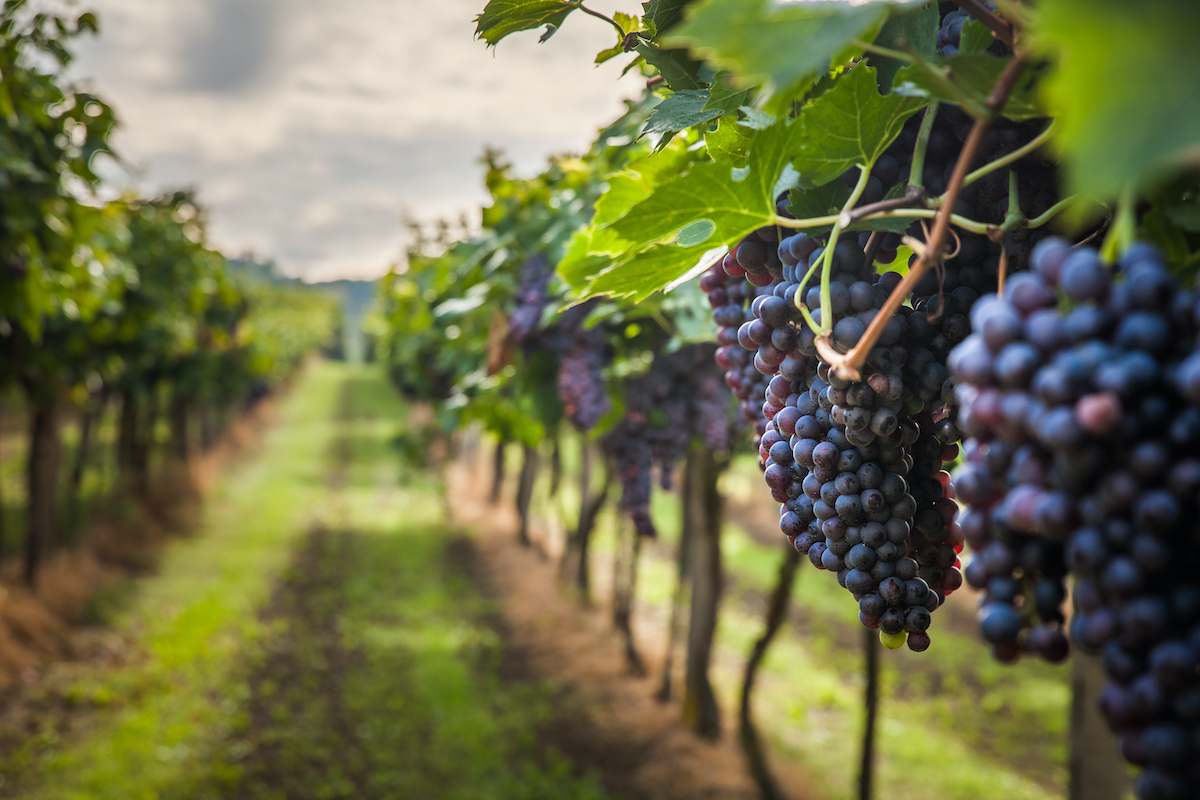
When it comes to wine experts, there is a clearly stratified hierarchy of expertise, dictated by the depth of knowledge one has about the industry. And at the very top of the pyramid are just 270 people from across the world who can officially call themselves a Master Sommelier – the most prestigious title in the business of oenology.
One of these masters of wine is Ronan Sayburn, a world-renowned expert who has worked in some of the UK’s most prestigious restaurants as well as being a previous recipient of the UK Sommelier of the Year competition and running his own sommelier school.
It’s clear that Sayburn knows his grapes; the wine connoisseur has been bringing his formidable knowledge to the judging panel of the Decanter World Wine Awards for 17 years, and having graduated from regional judge to acting co-chair last year, Sayburn has returned to the competition once again this summer with the role of judging gold standard wines.
While other masters of wine judging in the Awards this year may be specialists in particular regions, Sayburn explains to Tempus why being a Master Sommelier with a far wider range of expertise puts him at advantage when it comes to wine tasting.
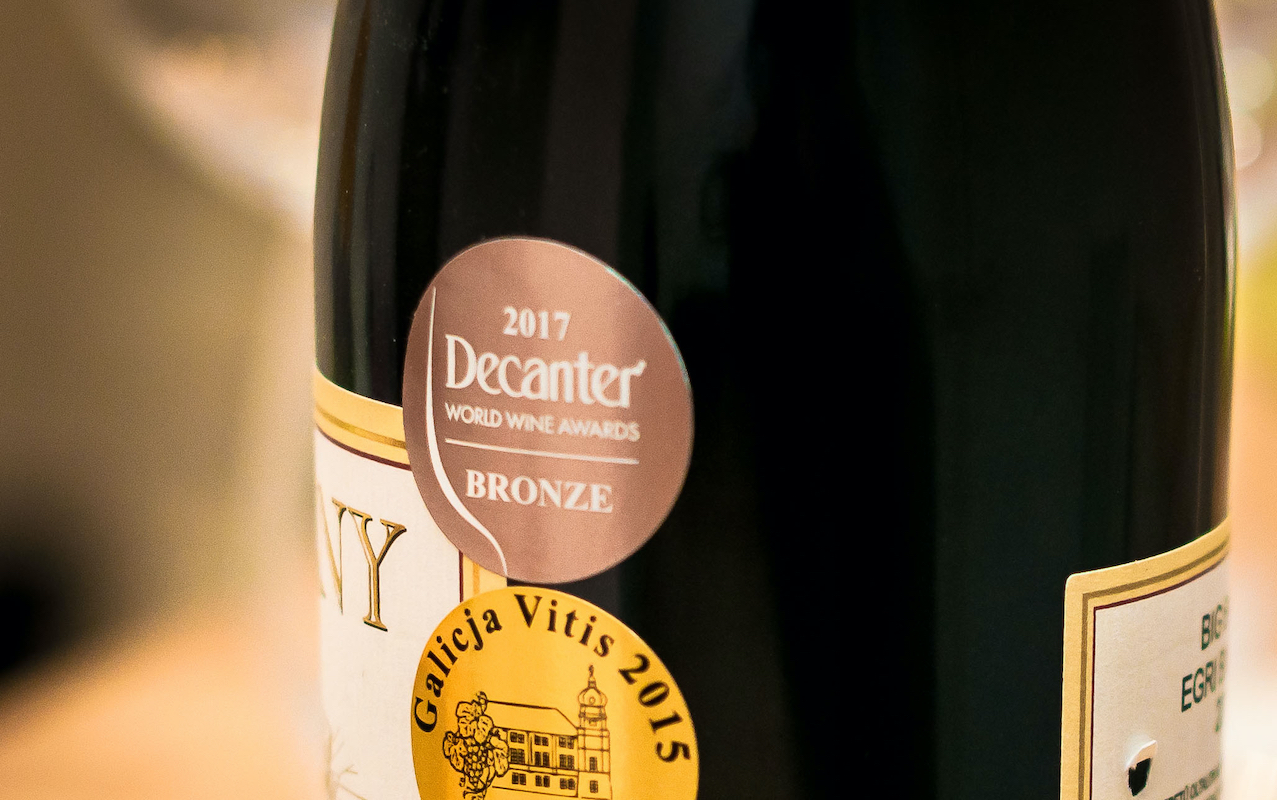
“Because we look after big wine lists in restaurants that are naturally quite varied and from different countries, it means that although sommeliers might not have a real expertise in one country, we have a very good solid grounding in every country," Sayburn, amicable and surprisingly laid back considering the extraordinary task ahead of him, tells us.
“That’s why being a co-chair is good because I’m not just getting Californian wines, for example, I’m getting champagnes, fortified wines and a whole variety. And when I put a wine list together it’s the same thing – I pick the best wines from all those different countries.”
Sayburn praises Decanter for its ability to trust the judges wholeheartedly in their decisions without pressuring them to meet a certain quota of awards.
“Competitions like this don't mean an awful lot if every wine is awarded Bronze," he says. "Decanter is the best wine magazine and the best World Wine Awards because it relies 100 per cent on its judges and their credibility. And that's usually why the best judges in the world come to work for Decanter for these two weeks.”
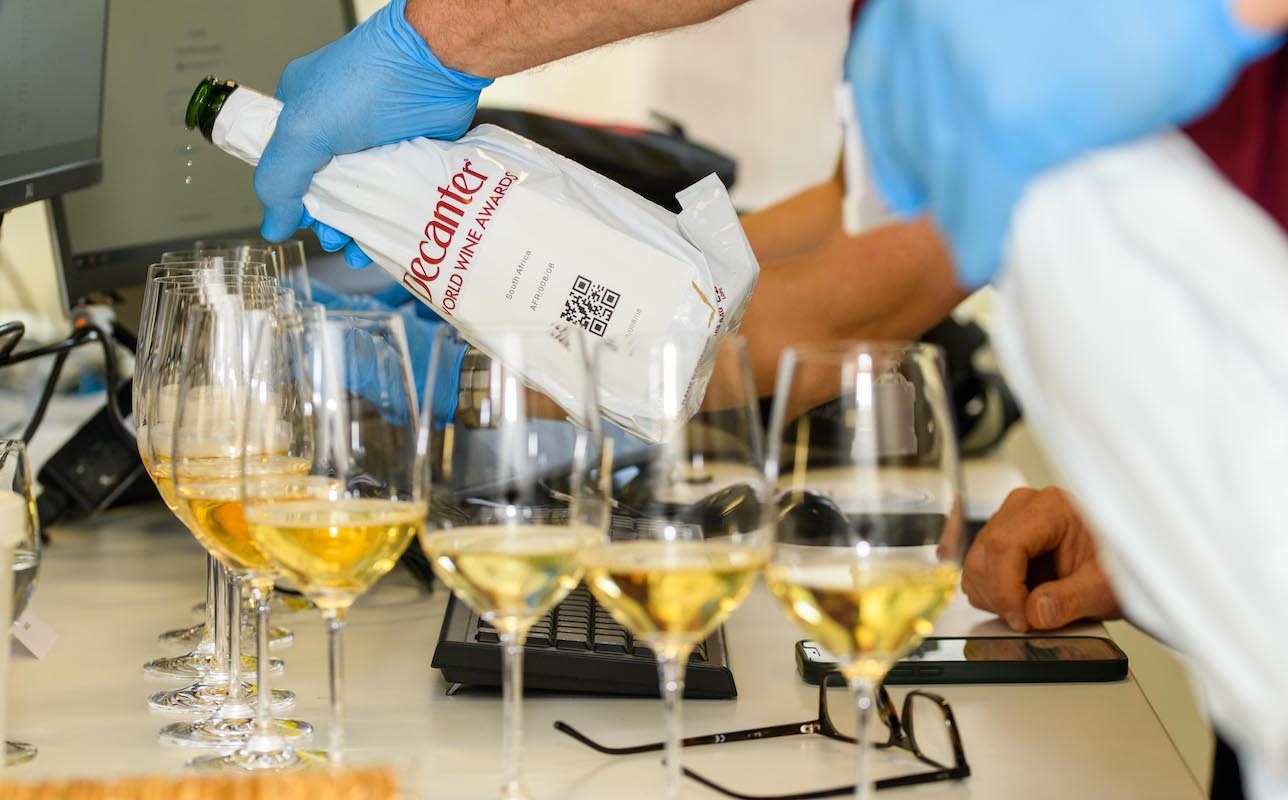
Price matters
When looking for the qualities in a Gold medal-winning wine, Sayburn says that the price is important.
“You can find a nice wine that maybe doesn't have a huge amount of oak in it, it might be quite simple with just a one dimensional fruit, but then it's really balanced, is less than 10 pounds and it's the kind of wine that you think ‘I would definitely drink that’. That wine could get a Gold because it's in the value category.”
“If you’re paying 50 pounds for a bottle of wine, you would hope that it's a wine that's got structure, longevity, will age in a cellar and then it can be taken out on a special occasion and won’t disappoint, ” Sayburn adds.
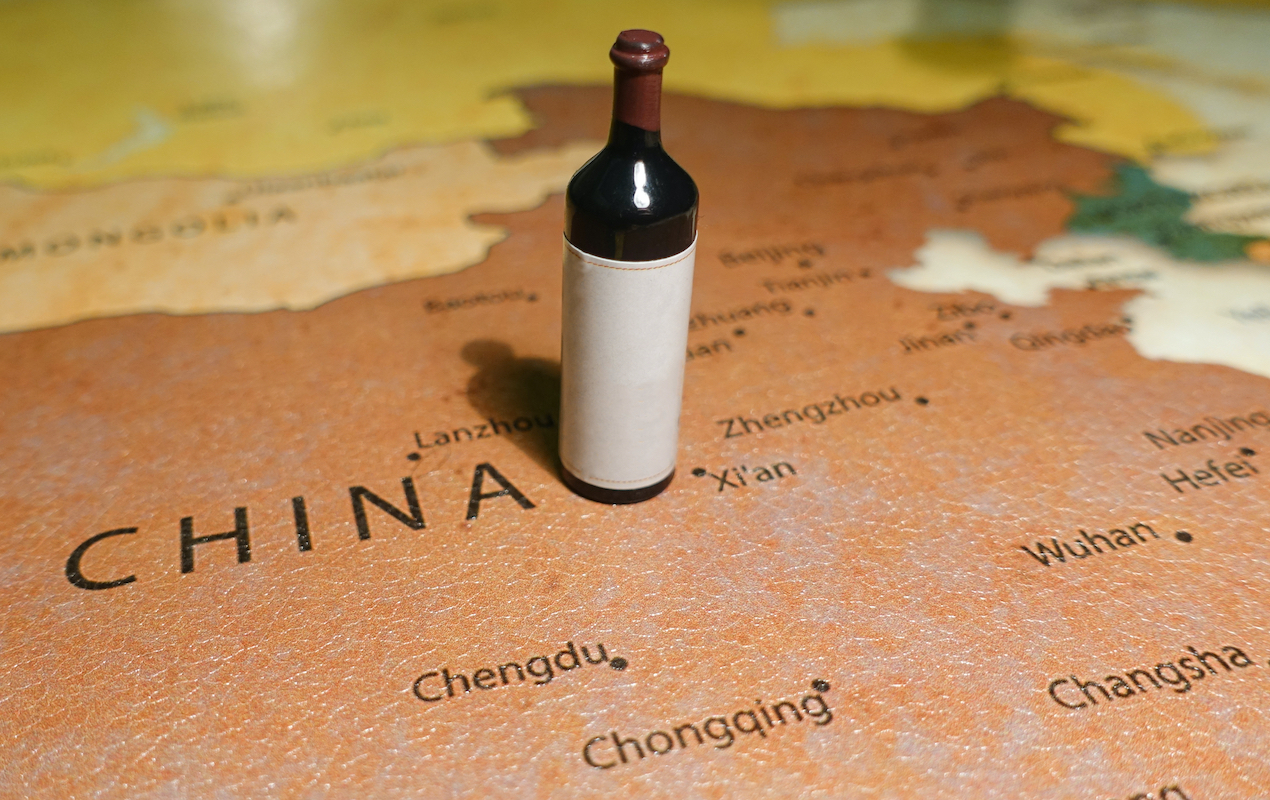
Sommelier favourites
When it comes to the experts’ tipple of choice, Sayburn reveals to our surprise that a large number of obsessive wine connoisseurs list Riesling among their favourites, along with Pinot Noir.
“Most people in the wine trade – Sommelier's, wine merchants – they all love Riesling," he says. “It's got very high acidity, it's very mouth cleansing. And it has a little bit of residual sugar, so it's not sweet, it just has a little bit to round the edges off. And Pinot Noir – everyone loves Pinot Noir.”
Screw top vs cork
Over the past several decades there has been some debate about the quality of screw top wines compared to wines with corks. Sayburn dispels this notion, saying that neither method is noticeably better than the other.
“‘In the early 2000s, when we were getting a lot more quality wine in the screwcap there were more people that were a bit snobby about it [compared to now].
“30 years ago using screw caps was very cheap. But nowadays, not so much; even the best wines in the world can come in a screw cap. And because there are so many more screw caps around, there is less intense pressure on the cork industry and thus the quality of the cork is getting better. So it goes hand in hand, ” he adds.
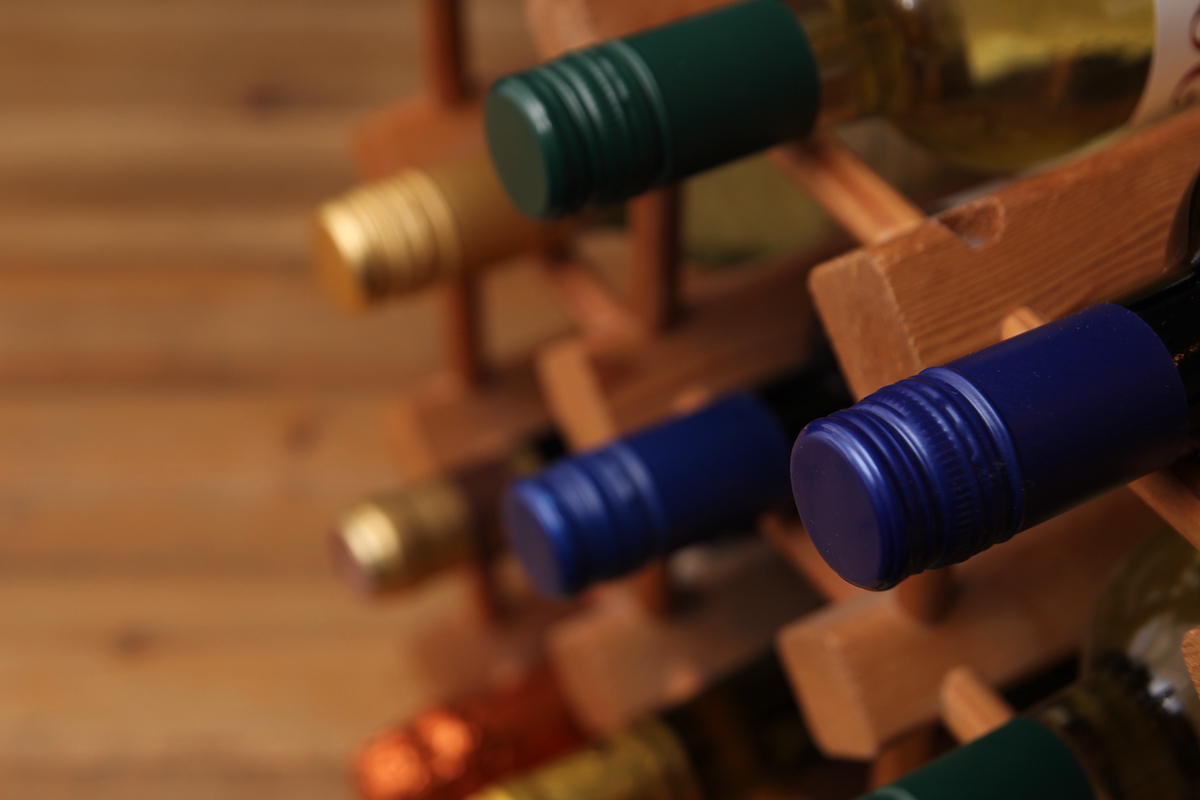
New trends to look out for
While Bordeaux, Burgundy and Champagne are reliably wines of choice year on year for lovers of high quality wine, there are other varieties that occasionally climb the ranks, growing in stature with each passing edition of the World Wine Awards.
“In the last couple of years, rosé has been popular. In Australia, they have this big campaign called Brosé, which is men drinking rosé,” says Sayburn. “And what's definitely becoming more and more prevalent each year is Asian wine. They're planting a lot of vines in China and making good Cabernet Sauvignon.
“The vines take a few years to get used to the environment. So in five or six years' time, you'll see a lot of good quality Cabernet and good quality reds coming out of China.”







